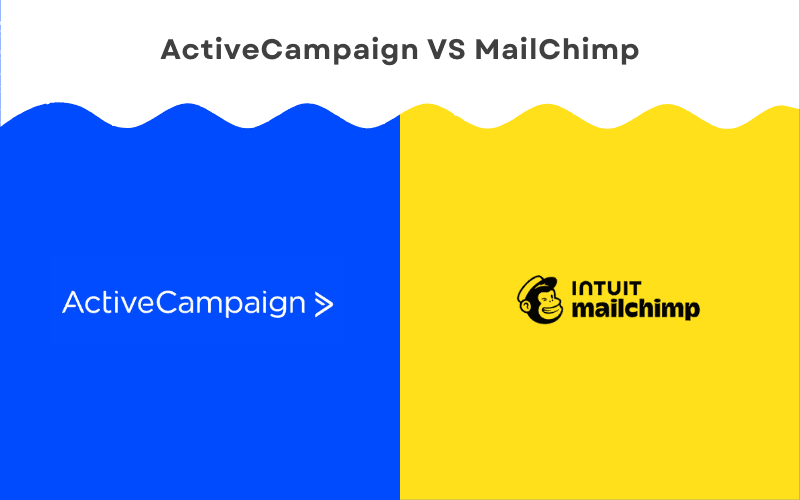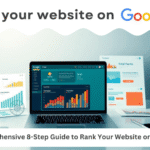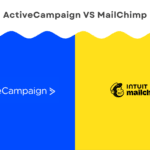Choosing the right email marketing tool can be a daunting task, especially when comparing popular options like ActiveCampaign vs Mailchimp. Both platforms offer a range of features designed to enhance your email marketing efforts, but which one is the best fit for your business? In this comprehensive comparison, we’ll delve into the key aspects of each tool, including pricing, ease of use, automation capabilities, and more, to help you make an informed decision. Whether you’re a small business owner or a marketing professional, this guide will provide valuable insights to help you choose the right platform for your needs.
Table of Contents
Pricing
When comparing ActiveCampaign vs Mailchimp, pricing is a crucial factor to consider. Both platforms offer tiered pricing plans to cater to different business needs, but they differ significantly in their structure and value.
ActiveCampaign Pricing Plans
ActiveCampaign offers four main pricing tiers: Lite, Plus, Professional, and Enterprise. The cost increases with the number of contacts and the features included in each plan.
- Lite Plan: Starts at $15 per month for up to 500 contacts. This plan includes basic email marketing, automation, and chat support.
- Plus Plan: Starts at $70 per month for up to 500 contacts. It adds CRM with sales automation, contact scoring, and integrations.
- Professional Plan: Starts at $159 per month for up to 500 contacts. This plan includes advanced automation, predictive sending, and split automation.
- Enterprise Plan: Custom pricing. It offers all features plus custom reporting, custom domain, and dedicated account support.

Mailchimp Pricing Plans
Mailchimp is also offers four pricing tiers: Free, Essentials, Standard, and Premium. The pricing is based on the number of subscribers and the features provided.
- Free Plan: $0 per month for up to 500 subscribers. It includes basic email marketing, templates, and limited automation.
- Essentials Plan: Starts at $13 per month for up to 500 subscribers. This plan includes all Free features plus A/B testing, custom branding, and 24/7 support.
- Standard Plan: Starts at $20 per month for up to 500 subscribers. It adds advanced audience insights, retargeting ads, and custom templates.
- Premium Plan: Starts at $350 per month for up to 10,000 subscribers. This plan includes all features plus advanced segmentation, multivariate testing, and phone support.
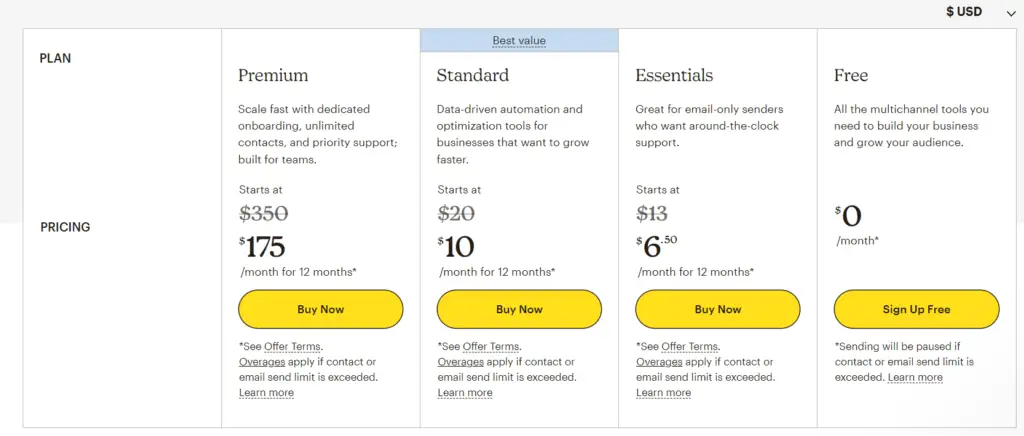
Value for Money
When evaluating ActiveCampaign vs Mailchimp in terms of value for money, it largely depends on your business needs. ActiveCampaign tends to offer more advanced automation and CRM features at a higher price point, making it suitable for businesses looking for robust marketing automation. On the other hand, Mailchimp provides a more affordable entry point with essential features, making it ideal for small businesses or those just starting with email marketing.
| Feature | ActiveCampaign | Mailchimp |
|---|---|---|
| Free Plan | Not available | Available (up to 500 subscribers, 2,500 emails/month) |
| Entry-Level Plan | Lite: $15/month (up to 500 contacts) | Essentials: $13/month (up to 500 subscribers) |
| Mid-Tier Plan | Plus: $70/month (up to 500 contacts) | Standard: $20/month (up to 500 subscribers) |
| Advanced Plan | Professional: $159/month (up to 500 contacts) | Premium: $350/month (up to 10,000 subscribers) |
| Enterprise Plan | Custom pricing | Not available |
| Email Templates | 250+ professional templates | 100+ templates |
| Automation | Advanced automation with conditional content and predictive sending | Basic automation with pre-built workflows |
| CRM Features | Built-in CRM with sales automation and lead scoring | Basic audience management and segmentation |
| Integrations | 850+ integrations, including deep data integrations with e-commerce platforms | 300+ integrations, including social media and e-commerce platforms |
| Reporting and Analytics | Advanced analytics with custom reports and goal tracking | Standard analytics with comparative reports and click maps |
| Support | Email, live chat, phone (Plus plan and above), extensive help center | Email (all plans), live chat (Essentials and above), phone (Premium), help center |
| Mobile App | Comprehensive app for campaign management, contact management, and automation | User-friendly app for campaign creation, audience management, and analytics |
| Deliverability | High deliverability rates with built-in spam testing and IP reputation management | Strong deliverability with spam testing and feedback loops |
| Security and Compliance | GDPR compliance tools, data encryption, two-factor authentication | GDPR compliance tools, data encryption, two-factor authentication |
By understanding the pricing structures and what each plan offers, you can make an informed decision on which platform provides the best value for your specific needs.
Ease of Use
When comparing ActiveCampaign vs Mailchimp, ease of use is a critical factor, especially for new users to email marketing or those who prefer a straightforward, intuitive interface.
User Interface and Experience
ActiveCampaign offers a clean and modern interface, but it can be somewhat overwhelming for beginners due to its extensive features and customization options. The dashboard is well-organized, but navigating through the various tools and settings may require a learning curve.

Mailchimp, on the other hand, is known for its user-friendly design. The interface is intuitive and easy to navigate, making it accessible for users of all skill levels. The drag-and-drop editor is particularly praised for its simplicity and effectiveness.
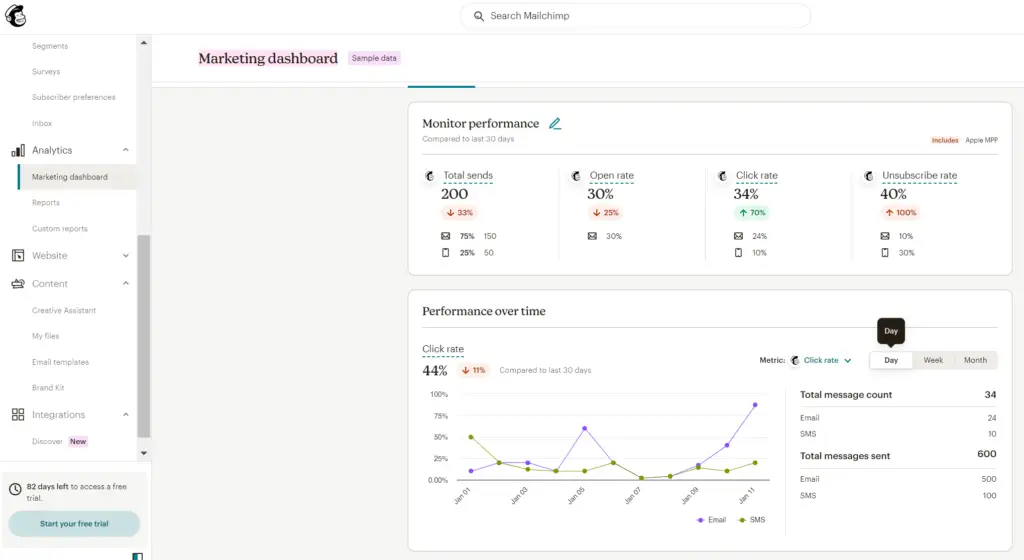
Setup Process
Setting up ActiveCampaign involves a few more steps compared to Mailchimp, primarily due to its advanced features. However, the platform provides detailed guides and tutorials to help users get started. The setup process includes configuring email templates, automation workflows, and CRM settings.
Mailchimp offers a quicker setup process, ideal for users who want to start their email campaigns immediately. The platform provides a guided setup that walks users through creating their first campaign, importing contacts, and customizing templates.
Learning Curve
ActiveCampaign has a steeper learning curve due to its comprehensive feature set. Users may need to invest time in learning how to utilize all the tools effectively. However, the platform offers extensive resources, including webinars, tutorials, and a knowledge base, to assist users.
Mailchimp is designed to be easy to learn and use, even for those with no prior experience in email marketing. The platform provides helpful tips and prompts throughout the user journey, making it easier to understand and use the features.
In summary, when it comes to ease of use, Mailchimp tends to be more beginner-friendly with its intuitive interface and straightforward setup process. ActiveCampaign, while more complex, offers powerful features that can be highly beneficial once mastered. Your choice between ActiveCampaign vs Mailchimp will depend on your comfort level with technology and your willingness to invest time in learning the platform.
Email Marketing Features
When evaluating ActiveCampaign vs Mailchimp , it’s essential to consider the email marketing features each platform offers. Both tools provide a range of functionalities to help you create, manage, and optimize your email campaigns, but they differ in their approach and capabilities.
Email Templates and Customization
ActiveCampaign offers a wide variety of professionally designed email templates that can be customized to fit your brand’s look and feel. The platform’s drag-and-drop editor allows you to easily modify templates, add images, and personalize content.
Mailchimp also provides a robust selection of email templates. Its drag-and-drop editor is user-friendly, making it simple to customize templates, add dynamic content, and ensure your emails are visually appealing.
Drag-and-Drop Editor
Both ActiveCampaign and Mailchimp feature intuitive drag-and-drop editors that enable users to create professional-looking emails without any coding knowledge.
- ActiveCampaign: The editor is highly flexible, allowing for detailed customization and the addition of various content blocks, such as images, text, buttons, and social media links.
- Mailchimp: Known for its simplicity, Mailchimp’s editor is designed to be straightforward, making it easy to build and edit emails quickly. It also includes a variety of pre-built content blocks to streamline the design process.
A/B Testing Capabilities
A/B testing is a crucial feature for optimizing email campaigns, and both platforms offer robust A/B testing tools.
- ActiveCampaign: Allows you to test different subject lines, email content, and send times. You can set up multiple variations and track performance metrics to determine the most effective strategies.
- Mailchimp: Provides A/B testing for subject lines, content, and send times as well. It also offers multivariate testing, which allows you to test multiple variables simultaneously to find the best combination.
Advanced Features
ActiveCampaign stands out with its advanced email marketing features, such as predictive sending, which uses machine learning to determine the best time to send emails to each contact. It also offers conditional content, allowing you to display different content blocks based on specific criteria.
Mailchimp includes advanced features like retargeting ads and social media integration, enabling you to extend your email marketing efforts across multiple channels. It also offers dynamic content, which personalizes email content based on subscriber data.
In conclusion, when comparing ActiveCampaign vs Mailchimp in terms of email marketing features, both platforms offer powerful tools to enhance your email campaigns. ActiveCampaign excels with its advanced automation and predictive features, while Mailchimp provides a user-friendly experience with robust customization and multichannel capabilities.
Automation Capabilities
When comparing ActiveCampaign vs Mailchimp, automation capabilities are a key factor that can significantly impact your email marketing efficiency and effectiveness. Both platforms offer robust automation features, but they cater to different levels of complexity and user needs.
Workflow Automation
ActiveCampaign excels in workflow automation with its powerful and flexible automation builder. Users can create complex automation sequences using a visual drag-and-drop interface. This allows for detailed customization of workflows, including triggers, actions, and conditions.
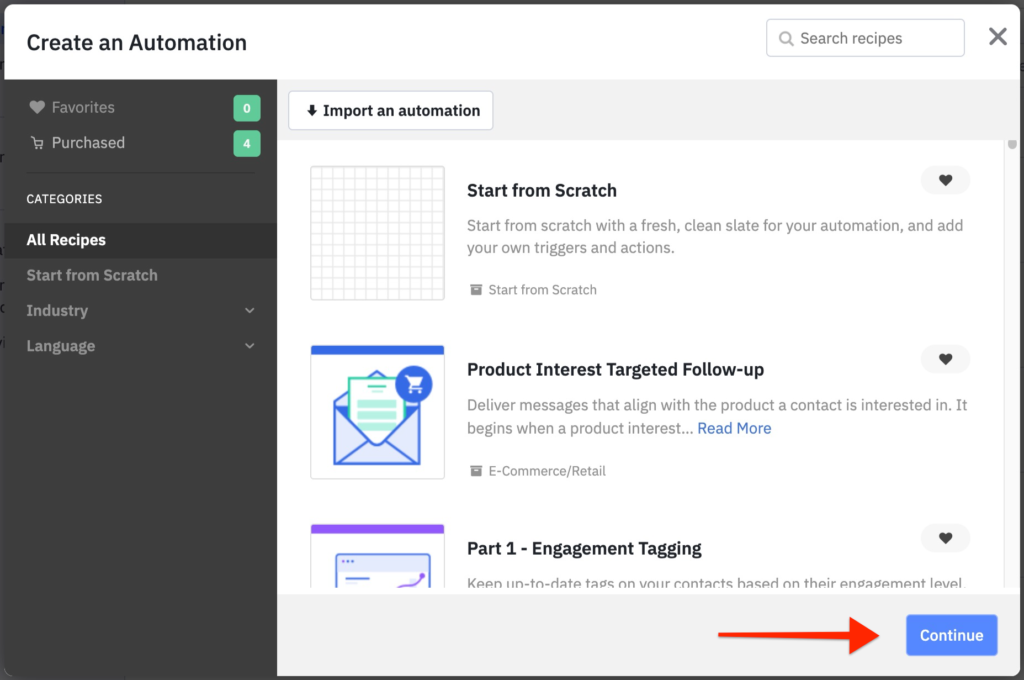
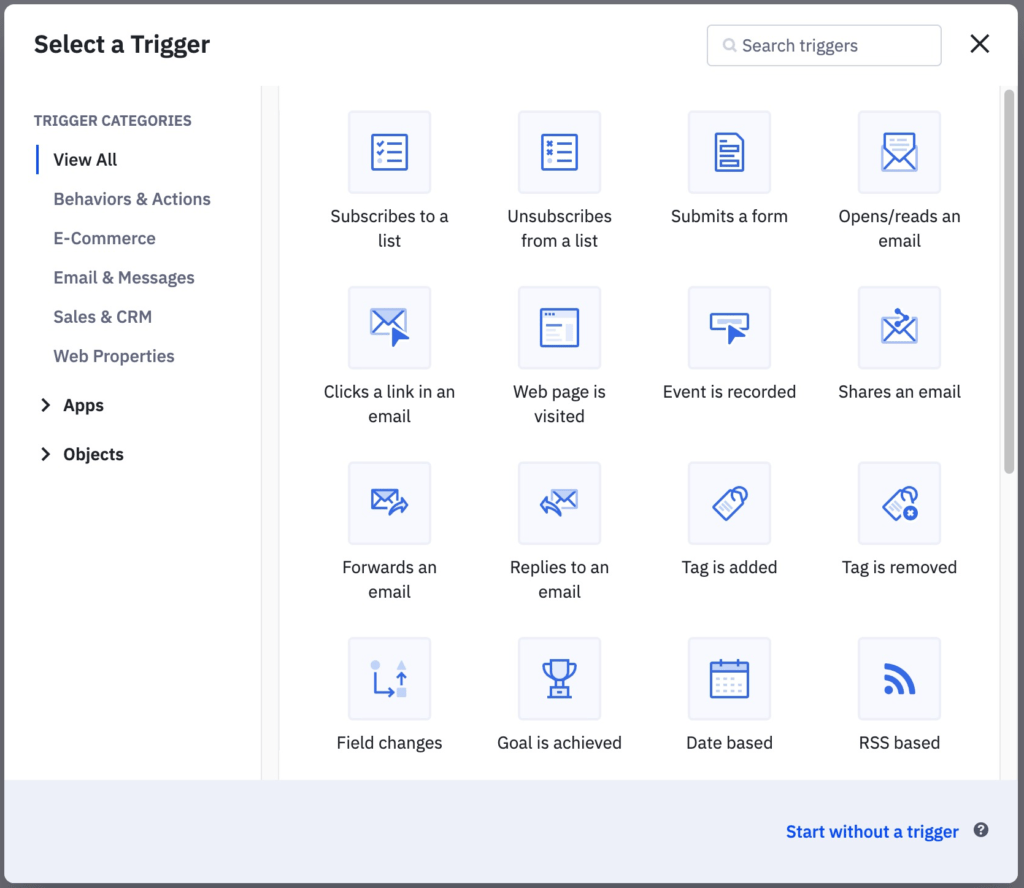
Mailchimp also offers automation capabilities, but they are more straightforward and user-friendly. The platform provides pre-built automation templates for common tasks such as welcome emails, abandoned cart reminders, and birthday messages. These templates make it easy to set up basic automation without extensive customization.


Trigger-Based Actions
Both ActiveCampaign and Mailchimp support trigger-based actions, which initiate automated workflows based on specific user behaviors or events.
- ActiveCampaign: Offers a wide range of triggers, including email opens, link clicks, form submissions, and website visits. This allows for highly targeted and personalized automation sequences.
- Mailchimp: Provides essential triggers such as email opens, link clicks, and purchase activity. While not as extensive as ActiveCampaign, these triggers are sufficient for most basic automation needs.
Advanced Automation Features
ActiveCampaign stands out with its advanced automation features, such as conditional content and goal tracking. Conditional content allows you to display different email content based on specific criteria, while goal tracking helps you measure the success of your automation workflows.
Mailchimp offers advanced features like retargeting ads and product recommendations, which can enhance your automation efforts by integrating with other marketing channels. These features help you create a more cohesive and effective marketing strategy.
In summary, when comparing ActiveCampaign vs Mailchimp in terms of automation capabilities, ActiveCampaign offers more advanced and customizable automation options, making it suitable for businesses with complex automation needs. Mailchimp, on the other hand, provides user-friendly and straightforward automation features that are ideal for beginners or those with simpler requirements.
CRM and Contact Management
When comparing ActiveCampaign vs Mailchimp, CRM and contact management capabilities are essential aspects to consider, especially for businesses looking to streamline their customer relationship processes and enhance their marketing efforts.
Built-in CRM Features
ActiveCampaign offers a robust built-in CRM that integrates seamlessly with its email marketing and automation tools. The CRM is designed to help businesses manage their contacts, track interactions, and automate sales processes. Key features include:
- Contact Management: Easily organize and manage your contacts with detailed profiles, custom fields, and tags.
- Sales Automation: Automate sales tasks such as follow-ups, deal updates, and task assignments.
- Pipeline Management: Visualize and manage your sales pipeline with drag-and-drop functionality.
Mailchimp provides basic CRM functionalities through its audience management tools. While not as advanced as ActiveCampaign, it allows users to:
- Segment Contacts: Create segments based on various criteria such as behavior, demographics, and engagement.
- Tagging: Use tags to organize and categorize contacts for targeted campaigns.
- Contact Profiles: View detailed contact profiles with activity history and engagement metrics.
Contact Segmentation
Effective contact segmentation is crucial for personalized marketing. Both ActiveCampaign and Mailchimp offer powerful segmentation tools.
- ActiveCampaign: Allows for advanced segmentation based on a wide range of criteria, including behavior, demographics, and custom fields. You can create dynamic segments that update automatically based on contact actions.
- Mailchimp: Provides easy-to-use segmentation tools that allow you to create segments based on engagement, purchase history, and other attributes. The platform also supports dynamic segments that update in real-time.
Lead Scoring
ActiveCampaign includes lead scoring as part of its CRM features. Lead scoring helps prioritize contacts based on their engagement and likelihood to convert. You can set up custom scoring rules based on actions such as email opens, link clicks, and website visits.
Mailchimp does not offer built-in lead scoring, but users can integrate third-party tools to add this functionality. This may require additional setup and costs.
In summary, when comparing ActiveCampaign vs Mailchimp in terms of CRM and contact management, ActiveCampaign provides a more comprehensive and integrated CRM solution with advanced features like sales automation and lead scoring. Mailchimp offers essential CRM functionalities that are suitable for basic contact management and segmentation needs.
Integrations
When comparing ActiveCampaign vs Mailchimp, the ability to integrate with other tools and platforms is a significant consideration. Both email marketing platforms offer extensive integration options, but they cater to different needs and preferences.
Third-Party Integrations
ActiveCampaign supports a wide range of third-party integrations, making it a versatile choice for businesses that rely on various tools. Some of the key integrations include:
- CRM Systems: Integrates seamlessly with popular CRMs like Salesforce, Zoho CRM, and Pipedrive.
- E-commerce Platforms: Connects with Shopify, WooCommerce, BigCommerce, and more to streamline your marketing and sales processes.
- Webinar Tools: Integrates with GoToWebinar, Zoom, and WebinarJam to enhance your webinar marketing efforts.
- Social Media: Connects with Facebook, Twitter, and LinkedIn to help you manage your social media campaigns.
Mailchimp also offers a robust selection of third-party integrations, making it easy to connect with the tools you already use. Key integrations include:
- E-commerce Platforms: Integrates with Shopify, WooCommerce, Magento, and more to sync your store data and automate marketing.
- CRM Systems: Connects with Salesforce, HubSpot, and Zoho CRM to manage your customer relationships.
- Social Media: Integrates with Facebook, Instagram, and Twitter to run social media ads and track performance.
- Content Management Systems: Connects with WordPress, Squarespace, and Drupal to embed signup forms and manage your audience.
API Access
Both ActiveCampaign and Mailchimp provide API access, allowing developers to create custom integrations and extend the functionality of the platforms.
- ActiveCampaign: Offers a comprehensive API with detailed documentation, enabling developers to build custom solutions and automate workflows. The API supports a wide range of actions, including managing contacts, automations, and campaigns.
- Mailchimp: Provides a well-documented API that allows developers to integrate Mailchimp with other applications and automate tasks. The API supports various functions, such as managing lists, campaigns, and reports.
Native Integrations
ActiveCampaign offers several native integrations that are built directly into the platform, providing seamless connectivity and enhanced functionality. These include:
- Deep Data Integrations: Syncs with e-commerce platforms to pull in purchase data and create targeted campaigns.
- Custom Apps: Allows users to build custom apps within ActiveCampaign to meet specific business needs.
Mailchimp also provides native integrations that are easy to set up and use. These include:
- Mailchimp for Shopify: A native integration that syncs your Shopify store data with Mailchimp for targeted email campaigns.
- Mailchimp for QuickBooks: Connects your QuickBooks account to Mailchimp to manage your finances and marketing in one place.
In conclusion, when comparing ActiveCampaign vs Mailchimp in terms of integrations, both platforms offer extensive options to connect with various tools and systems. ActiveCampaign excels with its deep data integrations and custom app capabilities, while Mailchimp provides a wide range of third-party and native integrations that are easy to set up and use.
Analytics and Reporting
When comparing ActiveCampaign vs Mailchimp, analytics and reporting capabilities are crucial for understanding the performance of your email campaigns and making data-driven decisions. Both platforms offer comprehensive reporting tools, but they differ in their depth and usability.
Reporting Dashboards
ActiveCampaign provides a detailed reporting dashboard that offers insights into various aspects of your email campaigns. The dashboard includes metrics such as open rates, click-through rates, bounce rates, and more. It also allows you to track the performance of your automation workflows and sales pipelines.
Mailchimp also features an intuitive reporting dashboard that presents essential metrics in a user-friendly format. The dashboard includes data on open rates, click rates, unsubscribes, and social media engagement. It provides a clear overview of your campaign performance at a glance.
Performance Metrics
Both ActiveCampaign and Mailchimp offer a range of performance metrics to help you evaluate the success of your email campaigns.
- ActiveCampaign: In addition to standard metrics, ActiveCampaign provides advanced analytics such as goal tracking, revenue reports, and engagement tracking. These metrics help you understand how your campaigns contribute to your overall business goals.
- Mailchimp: Offers detailed metrics including click maps, which show where recipients clicked within your email, and comparative reports, which allow you to compare the performance of different campaigns. These insights help you optimize your email content and strategy.
Custom Reports
ActiveCampaign allows users to create custom reports tailored to their specific needs. You can choose from a variety of data points and metrics to generate reports that provide the insights most relevant to your business. This flexibility is particularly useful for businesses with unique reporting requirements.
Mailchimp also supports custom reporting, enabling users to generate reports based on specific criteria and metrics. The platform offers pre-built report templates that can be customized to suit your needs, making it easy to access the data that matters most.
In summary, when comparing ActiveCampaign vs Mailchimp in terms of analytics and reporting, both platforms offer robust tools to help you track and analyze your email campaign performance. ActiveCampaign provides more advanced analytics and customizable reporting options, making it ideal for businesses that require in-depth insights. Mailchimp offers user-friendly reporting features that are easy to understand and use, making it suitable for users who prefer straightforward analytics.
Deliverability
When comparing ActiveCampaign vs Mailchimp, email deliverability is a critical factor to consider. Deliverability refers to the ability of your emails to reach your subscribers’ inboxes rather than being marked as spam or bouncing back. Both platforms have strong deliverability rates, but there are some differences in their approaches and features.
Email Deliverability Rates
ActiveCampaign is known for its high deliverability rates, thanks to its robust infrastructure and focus on maintaining a good sender reputation. The platform uses advanced algorithms to ensure that emails are delivered to the inbox and not the spam folder. ActiveCampaign also provides tools to help users improve their deliverability, such as email validation and list cleaning.
Mailchimp also boasts strong deliverability rates, supported by its extensive experience in the email marketing industry. The platform employs various techniques to maximize deliverability, including authentication protocols like DKIM and SPF, and feedback loops with major ISPs to monitor and address deliverability issues.
Spam Testing Tools
Both ActiveCampaign and Mailchimp offer spam testing tools to help users ensure their emails comply with best practices and avoid being flagged as spam.
- ActiveCampaign: Provides a built-in spam check tool that analyzes your email content and suggests improvements to enhance deliverability. This tool helps identify potential issues that could cause your emails to be marked as spam.
- Mailchimp: Offers a similar spam testing feature that evaluates your email against common spam filters. The tool provides actionable recommendations to improve your email’s chances of reaching the inbox.
IP Reputation Management
Maintaining a good IP reputation is crucial for email deliverability. Both platforms take measures to ensure their users’ IP addresses are not blacklisted.
- ActiveCampaign: Uses a combination of shared and dedicated IP addresses. For high-volume senders, dedicated IP addresses are available, which can help maintain a consistent sender reputation. ActiveCampaign also monitors IP reputation and takes proactive steps to address any issues.
- Mailchimp: Primarily uses shared IP addresses but offers dedicated IP addresses for higher-tier plans. The platform actively monitors IP reputation and works with users to resolve any deliverability issues that arise.
In summary, when comparing ActiveCampaign vs Mailchimp in terms of deliverability, both platforms offer strong deliverability rates and tools to help ensure your emails reach the inbox. ActiveCampaign provides advanced spam testing and IP reputation management features, making it a solid choice for businesses focused on maintaining high deliverability. Mailchimp also offers robust deliverability tools and has a proven track record in the industry.
Customer Support
When comparing ActiveCampaign vs Mailchimp, customer support is a vital aspect to consider. Reliable and accessible support can make a significant difference in how effectively you can use the platform and resolve any issues that arise.
Support Channels
ActiveCampaign offers multiple support channels to assist its users:
- Email Support: Available to all users, providing detailed responses to queries.
- Live Chat: Accessible during business hours for real-time assistance.
- Phone Support: Available for Plus, Professional, and Enterprise plan users.
- Help Center: Comprehensive knowledge base with articles, guides, and tutorials.
Mailchimp also provides various support options:
- Email Support: Available to all users, with priority support for higher-tier plans.
- Live Chat: Available for Essentials, Standard, and Premium plan users.
- Phone Support: Exclusive to Premium plan users.
- Help Center: Extensive library of articles, tutorials, and FAQs.
Availability and Response Time
ActiveCampaign is known for its responsive customer support. Email and chat support are typically available during business hours, with quick response times. Phone support is prioritized for higher-tier plans, ensuring that users with more complex needs receive timely assistance.
Mailchimp offers 24/7 email support for all users, with live chat and phone support available during business hours for eligible plans. The response times are generally prompt, especially for users on higher-tier plans who receive priority support.
Quality of Support
Both ActiveCampaign and Mailchimp are praised for the quality of their customer support, but there are some differences in user experiences.
- ActiveCampaign: Users often commend the platform for its knowledgeable and helpful support staff. The detailed and personalized responses help users resolve issues effectively. The extensive help center also provides valuable resources for self-service support.
- Mailchimp: Users appreciate the platform’s comprehensive support resources and the helpfulness of the support team. The availability of 24/7 email support is a significant advantage, ensuring that users can get help whenever they need it.
In summary, when comparing ActiveCampaign vs Mailchimp in terms of customer support, both platforms offer robust support options. ActiveCampaign provides a range of support channels with responsive and knowledgeable assistance, making it a strong choice for users who need reliable support. Mailchimp offers extensive support resources and 24/7 email support, making it ideal for users who value around-the-clock assistance.
Mobile Accessibility
When comparing ActiveCampaign vs Mailchimp, mobile accessibility is an important factor, especially for users who need to manage their email marketing campaigns on the go. Both platforms offer mobile apps and mobile-friendly features, but they differ in their capabilities and user experience.
Mobile App Features
ActiveCampaign provides a mobile app that allows users to manage their email marketing and CRM tasks from their smartphones. Key features of the ActiveCampaign mobile app include:
- Campaign Management: Create, edit, and send email campaigns directly from the app.
- Contact Management: Access and update contact information, add notes, and view interaction history.
- Automation Management: Monitor and manage your automation workflows on the go.
- Task Management: View and complete tasks assigned to you within the CRM.
Mailchimp also offers a robust mobile app designed to help users manage their email marketing efforts from anywhere. Key features of the Mailchimp mobile app include:
- Campaign Creation: Design and send email campaigns using the app’s drag-and-drop editor.
- Audience Management: Add new contacts, view audience insights, and manage segments.
- Analytics: Track campaign performance with real-time reports and analytics.
- Notifications: Receive push notifications for important updates and campaign milestones.
Mobile-Friendly Email Design
Both ActiveCampaign and Mailchimp ensure that emails created on their platforms are mobile-friendly, which is crucial given the increasing number of users accessing emails on mobile devices.
- ActiveCampaign: Offers responsive email templates that automatically adjust to different screen sizes. The drag-and-drop editor allows you to preview how your emails will look on mobile devices, ensuring a seamless experience for your subscribers.
- Mailchimp: Provides mobile-responsive templates and a mobile preview feature within its email editor. This allows you to see how your emails will appear on various devices and make necessary adjustments to optimize the mobile experience.
On-the-Go Management
Both platforms enable users to manage their email marketing campaigns and CRM tasks while on the move, but they cater to different needs.
- ActiveCampaign: The mobile app is particularly useful for sales teams and marketers who need to manage contacts, track deals, and monitor automation workflows from anywhere. The app’s comprehensive features make it a powerful tool for on-the-go management.
- Mailchimp: The mobile app is designed for ease of use, allowing users to quickly create and send campaigns, manage their audience, and track performance. It’s ideal for users who need to perform essential email marketing tasks while away from their desks.
In summary, when comparing ActiveCampaign vs Mailchimp in terms of mobile accessibility, both platforms offer robust mobile apps and mobile-friendly features. ActiveCampaign provides a comprehensive mobile app with advanced CRM and automation management capabilities, making it suitable for users who need extensive on-the-go functionality. Mailchimp offers a user-friendly mobile app that excels in ease of use and essential email marketing tasks, making it ideal for users who prioritize simplicity and efficiency.
Customization and Personalization
When comparing ActiveCampaign vs Mailchimp, customization and personalization are key factors that can significantly enhance the effectiveness of your email marketing campaigns. Both platforms offer robust tools to tailor your emails to your audience, but they differ in their approach and capabilities.
Personalization Options
ActiveCampaign provides extensive personalization options that allow you to create highly targeted and relevant emails. Key features include:
- Dynamic Content: Customize email content based on specific criteria, such as subscriber behavior, preferences, and demographics. This ensures that each recipient receives content that is most relevant to them.
- Conditional Content: Display different content blocks within the same email based on predefined conditions. This feature is useful for tailoring messages to different segments of your audience.
- Personalization Tags: Use tags to insert personalized information, such as the recipient’s name, location, or purchase history, directly into your emails.
Mailchimp also offers a range of personalization options to help you create more engaging emails. Key features include:
- Merge Tags: Insert personalized information, such as the recipient’s name, birthday, or other custom fields, into your emails using merge tags.
- Dynamic Content: Similar to ActiveCampaign, Mailchimp allows you to display different content blocks based on subscriber data and behavior.
- Product Recommendations: Automatically suggest products based on a subscriber’s past purchases and browsing behavior.
Customization Features
Both ActiveCampaign and Mailchimp provide powerful customization tools to help you design emails that reflect your brand and resonate with your audience.
- ActiveCampaign: Offers a flexible drag-and-drop email editor that allows you to customize templates, add various content blocks, and adjust the layout to match your brand’s style. You can also create custom templates from scratch or modify existing ones to suit your needs.
- Mailchimp: Features an intuitive drag-and-drop editor that makes it easy to customize email templates. You can add images, text, buttons, and other elements to create visually appealing emails. Mailchimp also offers a variety of pre-designed templates that can be customized to fit your brand.
Advanced Personalization
ActiveCampaign excels in advanced personalization with features like predictive sending and lead scoring. Predictive sending uses machine learning to determine the best time to send emails to each contact, increasing the likelihood of engagement. Lead scoring helps prioritize contacts based on their engagement and likelihood to convert, allowing for more targeted follow-ups.
Mailchimp offers advanced personalization through its retargeting ads and multivariate testing. Retargeting ads allow you to reach subscribers who have interacted with your emails or website, while multivariate testing helps you determine the most effective combination of email elements.
In summary, when comparing ActiveCampaign vs Mailchimp in terms of customization and personalization, both platforms offer robust tools to tailor your emails to your audience. ActiveCampaign provides more advanced personalization options and customization features, making it ideal for businesses looking to create highly targeted and dynamic email campaigns. Mailchimp offers user-friendly personalization and customization tools that are perfect for creating engaging and visually appealing emails.
Scalability
When comparing ActiveCampaign vs Mailchimp, scalability is a crucial factor, especially for businesses that anticipate growth and need a platform that can grow with them. Both platforms offer scalable solutions, but they cater to different types of businesses and growth trajectories.
Suitability for Small Businesses
ActiveCampaign is designed to support businesses of all sizes, but it particularly shines for small to medium-sized businesses that require advanced automation and CRM features. The platform’s tiered pricing plans allow businesses to start with basic features and upgrade as their needs grow. ActiveCampaign’s robust automation capabilities and CRM integration make it a powerful tool for businesses looking to scale their marketing efforts efficiently.
Mailchimp is well-suited for small businesses and startups due to its user-friendly interface and affordable pricing plans. The platform offers a free plan that includes essential email marketing features, making it an attractive option for businesses with limited budgets. As businesses grow, they can upgrade to higher-tier plans that offer more advanced features and higher subscriber limits.
Suitability for Large Enterprises
ActiveCampaign excels in supporting larger enterprises with its advanced automation, detailed analytics, and comprehensive CRM features. The platform’s Enterprise plan offers custom pricing and dedicated support, ensuring that large businesses have the resources and assistance they need to manage complex marketing campaigns. ActiveCampaign’s scalability is evident in its ability to handle large contact lists and sophisticated automation workflows.
Mailchimp also caters to larger businesses with its Premium plan, which includes advanced segmentation, multivariate testing, and priority support. While Mailchimp is often seen as more suitable for small to medium-sized businesses, its higher-tier plans provide the necessary tools for larger enterprises to manage extensive email marketing campaigns and analyze performance metrics.
Growth Potential
Both ActiveCampaign and Mailchimp offer features that support business growth, but they do so in different ways.
- ActiveCampaign: Focuses on providing advanced automation and CRM capabilities that allow businesses to streamline their marketing and sales processes. The platform’s scalability is enhanced by its ability to integrate with a wide range of third-party tools, making it a versatile choice for growing businesses.
- Mailchimp: Emphasizes ease of use and affordability, making it an excellent choice for businesses that need to scale their email marketing efforts without a steep learning curve. Mailchimp’s extensive library of templates and pre-built automation workflows helps businesses quickly expand their marketing activities.
In summary, when comparing ActiveCampaign vs Mailchimp in terms of scalability, both platforms offer robust solutions that can grow with your business. ActiveCampaign is ideal for businesses that require advanced automation and CRM features to support complex marketing strategies. Mailchimp is perfect for small to medium-sized businesses looking for an affordable, user-friendly platform that can scale as they grow.
Security and Compliance
When comparing ActiveCampaign vs Mailchimp, security and compliance are critical factors to consider, especially given the importance of protecting customer data and adhering to regulatory requirements. Both platforms prioritize security and offer features to help businesses stay compliant with various regulations.
Data Security Measures
ActiveCampaign implements robust security measures to protect user data. Key features include:
- Encryption: Data is encrypted both in transit and at rest, ensuring that sensitive information is protected from unauthorized access.
- Two-Factor Authentication (2FA): Adds an extra layer of security by requiring a second form of verification during login.
- Regular Security Audits: Conducts regular security audits and vulnerability assessments to identify and address potential risks.
Mailchimp also takes data security seriously and offers several measures to safeguard user information:
- Encryption: Uses TLS encryption to protect data in transit and AES encryption for data at rest.
- Two-Factor Authentication (2FA): Provides an additional layer of security for user accounts.
- Security Monitoring: Continuously monitors for suspicious activity and potential threats to ensure data integrity.
GDPR Compliance
Both ActiveCampaign and Mailchimp are committed to helping users comply with the General Data Protection Regulation (GDPR), which is crucial for businesses operating in the European Union.
- ActiveCampaign: Offers GDPR compliance tools such as consent management, data processing agreements, and the ability to handle data subject requests (e.g., data access, deletion, and portability). The platform also provides resources and guides to help users understand and implement GDPR requirements.
- Mailchimp: Provides features to help users comply with GDPR, including customizable signup forms to capture consent, data processing agreements, and tools to manage data subject requests. Mailchimp also offers educational resources to guide users through GDPR compliance.
Other Regulatory Compliance
In addition to GDPR, both platforms support compliance with other regulations such as the CAN-SPAM Act and the California Consumer Privacy Act (CCPA).
- ActiveCampaign: Ensures compliance with various regulations by providing features like unsubscribe management, email authentication (DKIM, SPF), and detailed audit logs. These tools help businesses maintain compliance with email marketing laws and protect consumer privacy.
- Mailchimp: Offers tools to help users comply with the CAN-SPAM Act, including easy-to-use unsubscribe options and email authentication. The platform also supports CCPA compliance by providing features to manage consumer data requests and maintain transparency.
In summary, when comparing ActiveCampaign vs Mailchimp in terms of security and compliance, both platforms offer robust measures to protect user data and ensure regulatory compliance. ActiveCampaign provides comprehensive security features and GDPR compliance tools, making it a strong choice for businesses with stringent data protection needs. Mailchimp offers user-friendly security measures and compliance tools, making it ideal for businesses looking for straightforward solutions to meet regulatory requirements.
User Reviews and Reputation
When comparing ActiveCampaign vs Mailchimp, user reviews and reputation provide valuable insights into the strengths and weaknesses of each platform. Both tools are highly regarded in the email marketing industry, but they cater to different user needs and preferences.
ActiveCampaign User Reviews
ActiveCampaign is praised for its powerful automation features, robust CRM capabilities, and excellent customer support. Users appreciate the platform’s flexibility and the ability to create complex automation workflows. However, some users mention that the learning curve can be steep due to the extensive features available.
- Pros: Advanced automation, comprehensive CRM, responsive customer support.
- Cons: Steeper learning curve, higher pricing for advanced features.
Mailchimp User Reviews
Mailchimp is well-known for its user-friendly interface, affordability, and extensive template library. Users find the platform easy to navigate and appreciate the variety of pre-built templates and automation workflows. However, some users feel that Mailchimp’s automation capabilities are not as advanced as those of ActiveCampaign.
- Pros: User-friendly, affordable, extensive template library.
- Cons: Limited advanced automation features, higher pricing for premium plans.
Industry Reputation
ActiveCampaign has built a strong reputation in the industry for its advanced marketing automation and CRM capabilities. It is often recommended for businesses that require sophisticated automation and detailed customer relationship management. ActiveCampaign is frequently featured in industry reports and comparisons, highlighting its robust feature set and scalability12.
Mailchimp is widely recognized for its ease of use and accessibility, making it a popular choice for small businesses and startups. The platform’s reputation for being beginner-friendly and budget-friendly has earned it a loyal user base. Mailchimp is often highlighted in industry reviews for its comprehensive email marketing features and user-friendly design12.
Case Studies and Testimonials
ActiveCampaign: Many businesses have shared success stories about how ActiveCampaign’s advanced automation and CRM features have helped them streamline their marketing efforts and improve customer engagement. These case studies often highlight the platform’s ability to handle complex workflows and provide detailed analytics.
Mailchimp: Numerous testimonials from small businesses and startups emphasize how Mailchimp’s user-friendly interface and affordable pricing have enabled them to launch effective email marketing campaigns. These success stories often focus on the ease of use and the variety of templates available.
In summary, when comparing ActiveCampaign vs Mailchimp in terms of user reviews and reputation, both platforms have strong followings and positive feedback. ActiveCampaign is highly regarded for its advanced automation and CRM capabilities, making it ideal for businesses with complex marketing needs. Mailchimp is praised for its ease of use and affordability, making it a great choice for small businesses and beginners.
Conclusion
In the comparison of ActiveCampaign vs Mailchimp, both platforms offer robust email marketing solutions, but they cater to different needs and preferences.
ActiveCampaign stands out with its advanced automation capabilities, comprehensive CRM features, and detailed analytics. It’s an excellent choice for businesses that require sophisticated marketing automation and detailed customer relationship management. The platform’s scalability and extensive integration options make it suitable for businesses of all sizes, particularly those with complex marketing needs.
Mailchimp, on the other hand, is known for its user-friendly interface, affordability, and extensive template library. It’s ideal for small businesses and startups looking for an accessible and budget-friendly email marketing solution. Mailchimp’s ease of use and straightforward setup process make it a great option for beginners and those who prefer a simpler approach to email marketing.
Ultimately, the choice between ActiveCampaign vs Mailchimp depends on your specific business needs and goals. If you need advanced automation and CRM features, ActiveCampaign is the way to go. If you prioritize ease of use and affordability, Mailchimp is an excellent choice. Both platforms have their strengths, and either can help you achieve your email marketing objectives effectively.
Comparison Table: ActiveCampaign vs Mailchimp
| Feature | ActiveCampaign | Mailchimp |
|---|---|---|
| Free Plan | Not available | Available (up to 500 subscribers, 2,500 emails/month) |
| Entry-Level Plan | Lite: $15/month (up to 500 contacts) | Essentials: $13/month (up to 500 subscribers) |
| Mid-Tier Plan | Plus: $70/month (up to 500 contacts) | Standard: $20/month (up to 500 subscribers) |
| Advanced Plan | Professional: $159/month (up to 500 contacts) | Premium: $350/month (up to 10,000 subscribers) |
| Enterprise Plan | Custom pricing | Not available |
| Email Templates | 250+ professional templates | 100+ templates |
| Automation | Advanced automation with conditional content and predictive sending | Basic automation with pre-built workflows |
| CRM Features | Built-in CRM with sales automation and lead scoring | Basic audience management and segmentation |
| Integrations | 850+ integrations, including deep data integrations with e-commerce platforms | 300+ integrations, including social media and e-commerce platforms |
| Reporting and Analytics | Advanced analytics with custom reports and goal tracking | Standard analytics with comparative reports and click maps |
| Support | Email, live chat, phone (Plus plan and above), extensive help center | Email (all plans), live chat (Essentials and above), phone (Premium), help center |
| Mobile App | Comprehensive app for campaign management, contact management, and automation | User-friendly app for campaign creation, audience management, and analytics |
| Deliverability | High deliverability rates with built-in spam testing and IP reputation management | Strong deliverability with spam testing and feedback loops |
| Security and Compliance | GDPR compliance tools, data encryption, two-factor authentication | GDPR compliance tools, data encryption, two-factor authentication |


